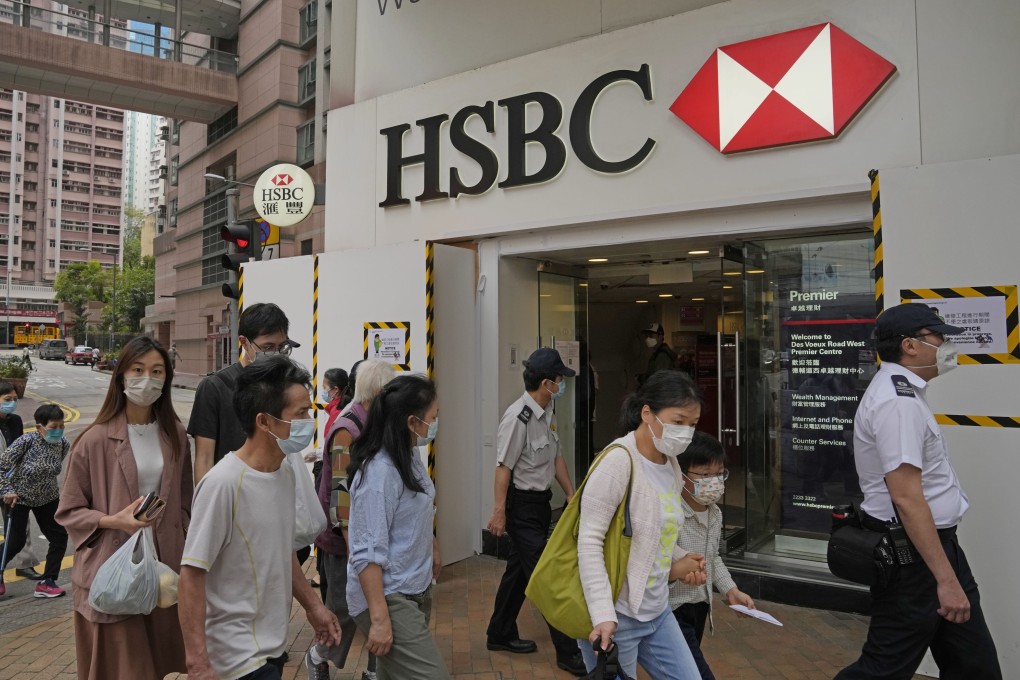Advertisement
HSBC, Standard Chartered seen reporting earnings setback on Covid, Ukraine war fallout. Can they surprise the market?
- HSBC, Standard Chartered are among big Hong Kong lenders to report their first quarter results this week
- Hong Kong’s economic growth expected to slow to 2.8 per cent this year as coronavirus control measures weigh on activity, according to Moody’s
Reading Time:3 minutes
Why you can trust SCMP

Chad Brayin London
When HSBC and Standard Chartered report their first-quarter results this week, investors will be looking for some clues: how much did the fifth wave of Covid-19 outbreak and the Ukraine war eat into their profits.
A surge in infections from the Omicron variant last quarter prompted lenders to temporarily close about a quarter of their branches across Hong Kong, depressing their stock prices from near a two-year high. Russia’s invasion of Ukraine also drove up commodity prices, pressuring interest rates in key markets at home and elsewhere.
Major American banks, which finished reporting last week, may offer some guidance, Citigroup analyst Yafei Tian said in a research note.
Advertisement
“Generally, market revenue was better than expected, investment banking was soft, capital was weak and provisions were higher, partially due to Russia exposures,” she wrote. “Read across to HSBC and Standard Chartered is that the top line can be supported by robust sales and trading.”
HSBC, the largest of the city’s three currency-issuing banks, will report on Tuesday,, is expected to report a 36 per cent drop in pre-tax profit to US$3.7 billion from a year earlier, based on consensus from analyst forecasts compiled by the bank.
Advertisement
Advertisement
Select Voice
Select Speed
1.00x
